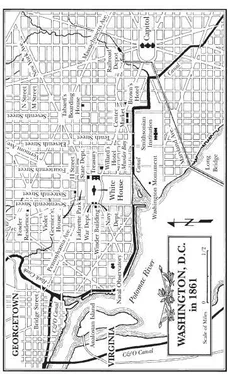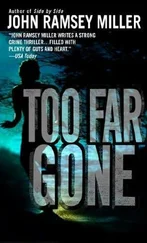John Miller - The First Assassin
Здесь есть возможность читать онлайн «John Miller - The First Assassin» весь текст электронной книги совершенно бесплатно (целиком полную версию без сокращений). В некоторых случаях можно слушать аудио, скачать через торрент в формате fb2 и присутствует краткое содержание. Жанр: Исторический детектив, на английском языке. Описание произведения, (предисловие) а так же отзывы посетителей доступны на портале библиотеки ЛибКат.
- Название:The First Assassin
- Автор:
- Жанр:
- Год:неизвестен
- ISBN:нет данных
- Рейтинг книги:3 / 5. Голосов: 1
-
Избранное:Добавить в избранное
- Отзывы:
-
Ваша оценка:
- 60
- 1
- 2
- 3
- 4
- 5
The First Assassin: краткое содержание, описание и аннотация
Предлагаем к чтению аннотацию, описание, краткое содержание или предисловие (зависит от того, что написал сам автор книги «The First Assassin»). Если вы не нашли необходимую информацию о книге — напишите в комментариях, мы постараемся отыскать её.
The First Assassin — читать онлайн бесплатно полную книгу (весь текст) целиком
Ниже представлен текст книги, разбитый по страницам. Система сохранения места последней прочитанной страницы, позволяет с удобством читать онлайн бесплатно книгу «The First Assassin», без необходимости каждый раз заново искать на чём Вы остановились. Поставьте закладку, и сможете в любой момент перейти на страницу, на которой закончили чтение.
Интервал:
Закладка:
“Hello?” A voice from the galley startled Rook. The colonel reached for his gun as he heard a foot hit the steps leading upward. “Weaver? Is that you?”
A black-haired man in a white shirt and brown trousers came up from the galley. “Hello?” he said again. Suddenly he stopped, seeing Rook squatted down and pointing a pistol at him. The man raised his hands above his head, and Rook put a finger to his lips. The man froze in place, but his eyes shifted to his right and down. Rook followed the man’s gaze to a rifle leaning against the wall of the boat’s cabin. Rook knew he had to act quickly.
“Are you for Union?” whispered Rook.
The man nodded. Rook weighed his options. He assumed the man was from western Maryland because that was where so many of the canal workers came from. The C amp;O Canal cut right through their territory. The people of western Maryland generally were unionists, and many of them supported the Lincoln administration even though they lived in a slave state.
“Then in the name of the Union, either get back down in the galley or take your rifle and come with me,” said Rook, rising to a full stand. He was glad to be in uniform-he thought it would help win the man’s confidence.
The man thought for a few seconds and then picked up his gun. “My name is Higginson,” he said, holding out his hand. Rook grasped it and introduced himself.
“We have a potentially dangerous situation here,” he said.
“A man’s life may be at stake.”
“Just tell me what to do,” said Higginson.
“Is there anybody else on board?”
“No. We unloaded this morning, and everybody’s gone for the afternoon.”
“Very well. Then it’s you and me. I’m hoping that we won’t need to fire these guns, but I’m certain we’ll have to show them.”
A minute later, they scrambled the length of the boat, each in an awkward hunch. Reaching the mule shed, they remained in a stoop and paused. Rook could hear Springfield talking to Stephens.
“…so as I was saying, I’ve always been fascinated by how the locks work on the canal. It’s really ingenious how you fellows get up, down, and around the rapids and falls.”
Then Rook heard another voice, coming from the cabin. “Is there a problem here, Officer?”
It was Davis. Rook could not see him, but he pictured the scene: Stephens and Springfield on the edge of the canal, Davis looking at them, and two others below with Clark. With the collaborators separated and distracted, now was a good time to strike, he thought.
Rook drew his gun and looked at Higginson. “Ready?” he asked in a whisper.
Higginson gripped his rifle. He looked nervous but nodded. “Let’s do it.”
Both men hopped onto the roof of the mule shed. Rook now had a plain view of Davis. There was a gap of about seven or eight feet between the end of Higginson’s barge and the start of Davis’s. Rook took a few steps and hurtled himself across, crashing into Davis. The big man slammed into the floor of the cabin. He took a bad blow to the head. Rook fell down too, but he regained his balance quickly and stuck his gun in Davis’s face. The commotion caused Stephens to turn around, which forced his attention away from Springfield just as the sergeant shoved him into the canal. Higginson remained standing on the mule shed of his boat, with his gun trained on the steps leading into the galley.
As Stephens thrashed around in the water-“I can’t swim!” he hollered-Springfield boarded the boat. Rook pointed to Davis. “Guard him,” he ordered. Then the colonel ran to the galley steps. Mallory was starting to climb them from below, but Rook kicked him in the face, knocking him backward.
The colonel scurried into the galley. It was small and dark, but he saw Clark sitting in a corner with Toombs hovering over him. “Hands up,” shouted Rook, pointing his gun. The man obeyed. The whole encounter, starting with Rook leaping onto the boat, had lasted about fifteen seconds.
“The dogs have found something,” said Tate, holding the end of a long leash.
“I think we’re getting close,” said Hughes.
The overseer knew the fugitives were nearby-the marks in the mud along the riverbank about half a mile back, where Portia and Joe apparently had rested, were fresh. The dogs had become ecstatic when they stumbled on that spot too. But then they fell silent and prowled around for a scent that suddenly had gone dead.
Tate suspected that the dogs’ barking had warned the runaways, who then raced into the creek. There was no way to tell whether they had gone upstream or downstream, though. Downstream seemed the likelier path, because upstream led to the plantation he and Hughes had seen from the road. So they set off downstream, leaving behind their own horses, which were too big to be of much use in the forest. Ahead of them on leashes, a dog raced along each side of the creek checking for the right smell.
One of the hounds stopped at a log beside the stream and yapped with excitement. The other splattered across the water to join it. Both sniffed at the fallen tree with great care, pacing up and down its length several times.
To Tate, the dogs appeared hesitant. If the scent of a slave led out of the stream, they would take it. If it did not, then they would continue following the flow of the water in the hope of picking it up soon. Yet they appeared torn between these two choices.
“Why do they seem so confused?” asked Hughes as the dogs continued investigating the log.
“I don’t know,” said Tate. “If these were younger dogs, I’d say a fox was distracting them. But these two are experienced. They’re onto something, and they don’t know what to make of it.”
One dog finally moved away from the log and into the woods. It had only gone about ten feet, however, when it turned around and barked. Its companion did not follow. Instead, it jogged back to the bank of the stream, pointed its snout in the direction they had been traveling, and barked a reply.
“They’re having a disagreement,” said Tate. “One wants to go into the trees and the other wants to stay with the stream.”
“Then it’s obvious what has happened,” said Hughes. “The slaves have split up. They must have panicked. I suggest we split up as well. You go into the woods because that’s where your dog wants to go, and I’ll follow the creek. We’ll have them soon!”
“I’m not so sure. It might make more sense to stay together-to catch one, and then the other.”
“Nonsense,” said Hughes. “It could take a couple of hours to track down just one of them. By then we would have allowed the gap between us and the other runaway to widen. I want to get them both, Tate. This is not a suggestion-it’s an order.”
Tate scowled at that comment. He did not care for orders coming from someone other than Bennett, though he understood Hughes to be Bennett’s man on this chase. Why had Bennett insisted that Hughes join him on this jaunt? He had spent the early part of their pursuit wishing one of the other overseers was with him instead.
“Very well,” Tate said at last, and he crashed into the trees.
Hughes watched him go. The man was good, he had to admit, even if there was a whiff of insubordination about him. Splitting up was the right thing to do, though. Capturing just one of the slaves rather than both was not necessarily half a success-it might very well be a total failure. What he needed was that picture. Only one of them could have it. Or perhaps each of them carried a copy. Whatever the case, Hughes knew he had to find both Portia and Joe. There was no other way to be sure an image of Mazorca did not fall into the wrong hands.
He continued down the stream, letting his dog dart from side to side. The animal had picked up the pace a bit. It sensed that success was at hand, and so did Hughes.
Читать дальшеИнтервал:
Закладка:
Похожие книги на «The First Assassin»
Представляем Вашему вниманию похожие книги на «The First Assassin» списком для выбора. Мы отобрали схожую по названию и смыслу литературу в надежде предоставить читателям больше вариантов отыскать новые, интересные, ещё непрочитанные произведения.
Обсуждение, отзывы о книге «The First Assassin» и просто собственные мнения читателей. Оставьте ваши комментарии, напишите, что Вы думаете о произведении, его смысле или главных героях. Укажите что конкретно понравилось, а что нет, и почему Вы так считаете.












